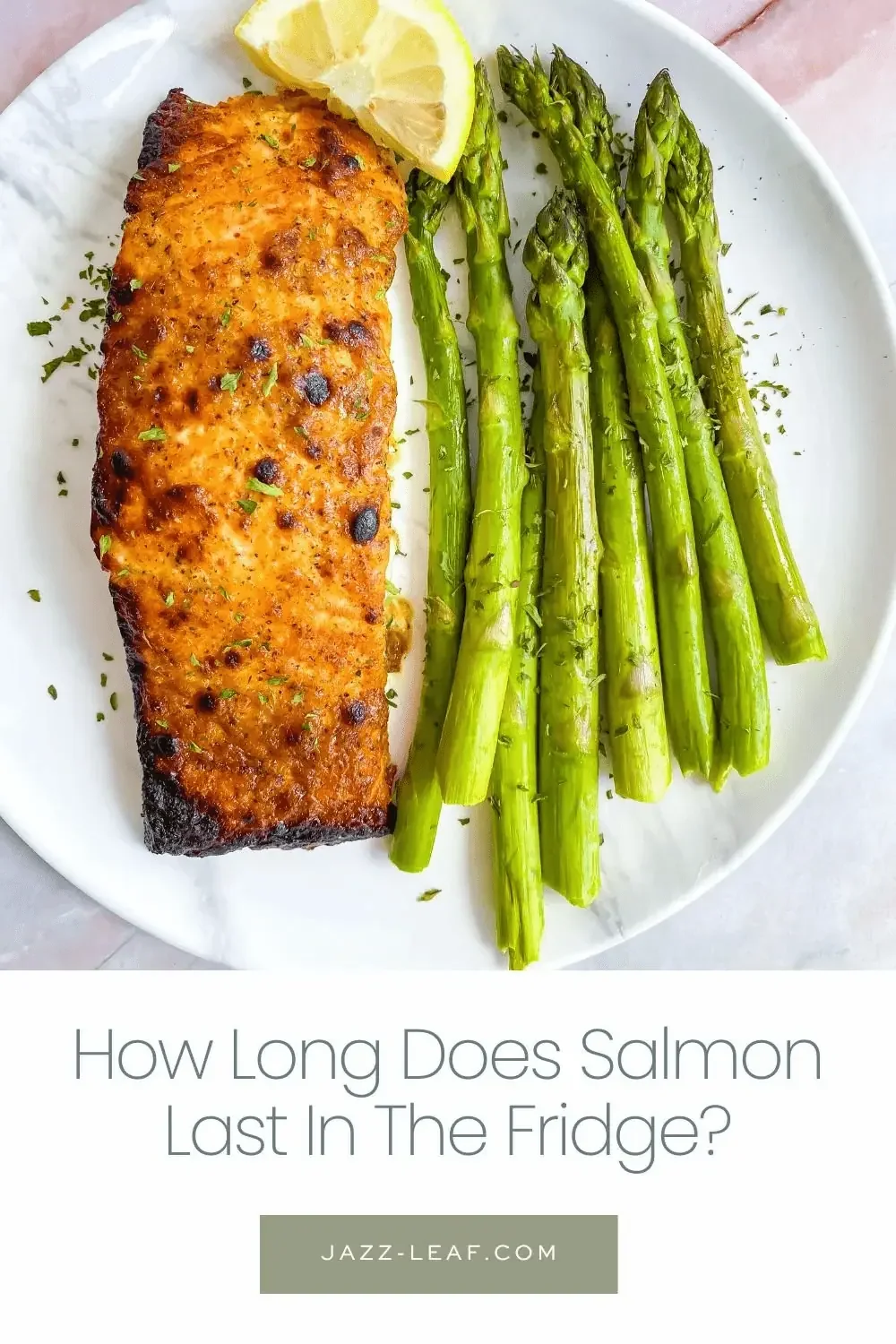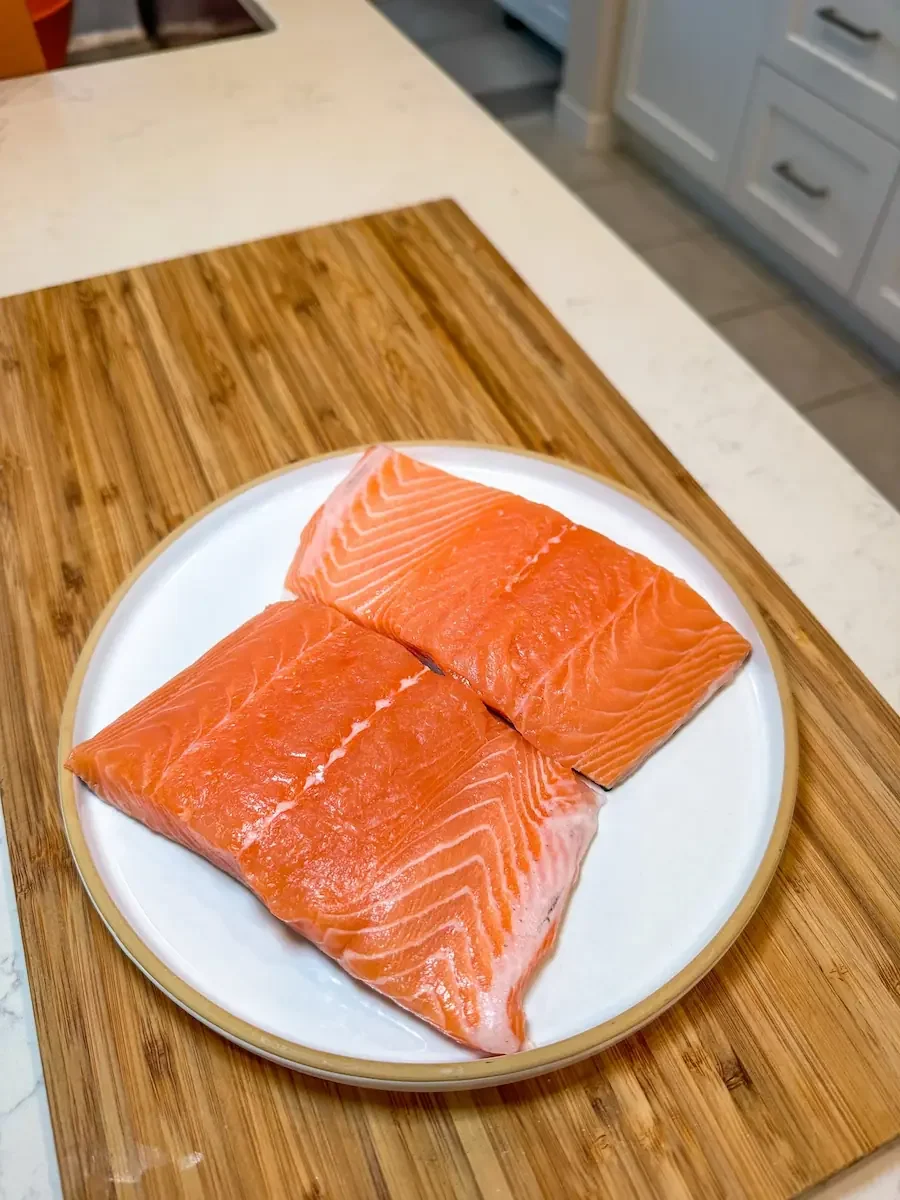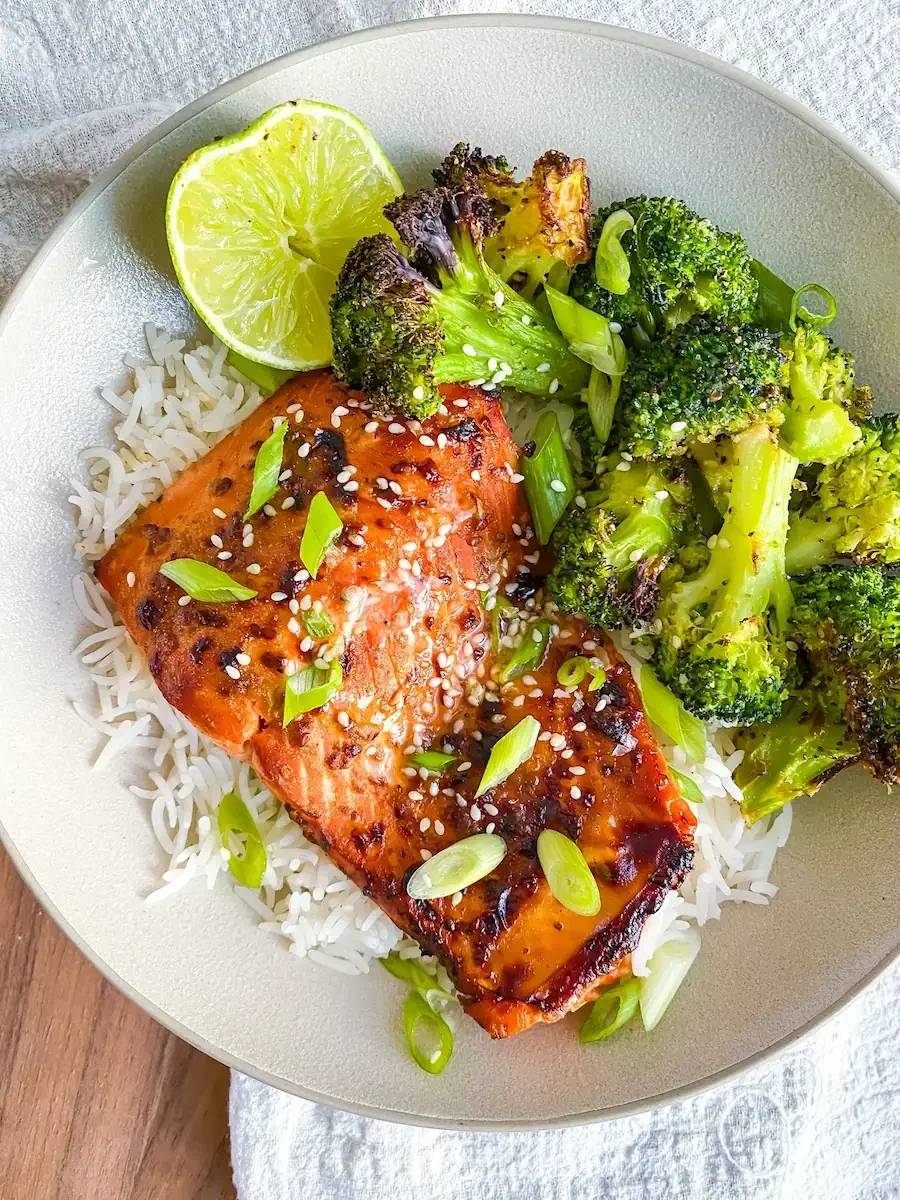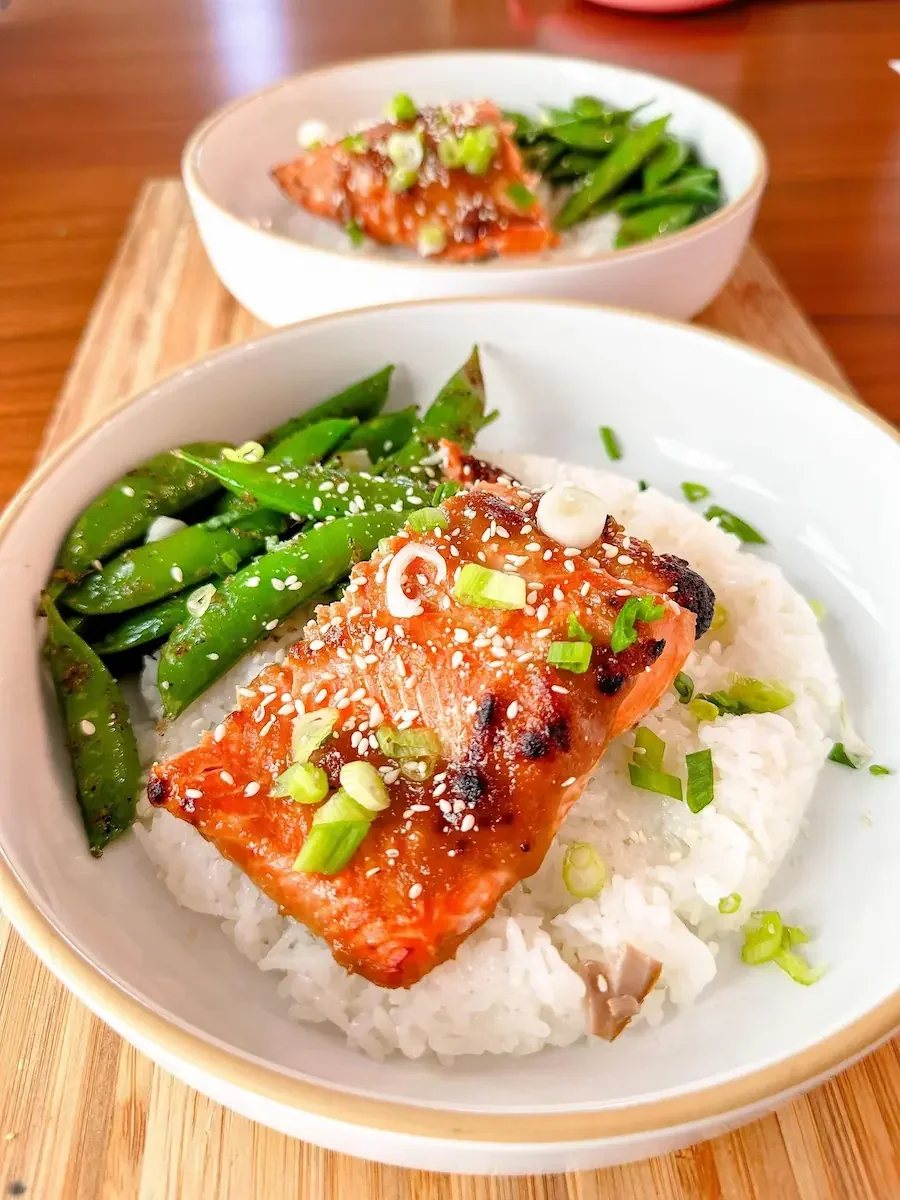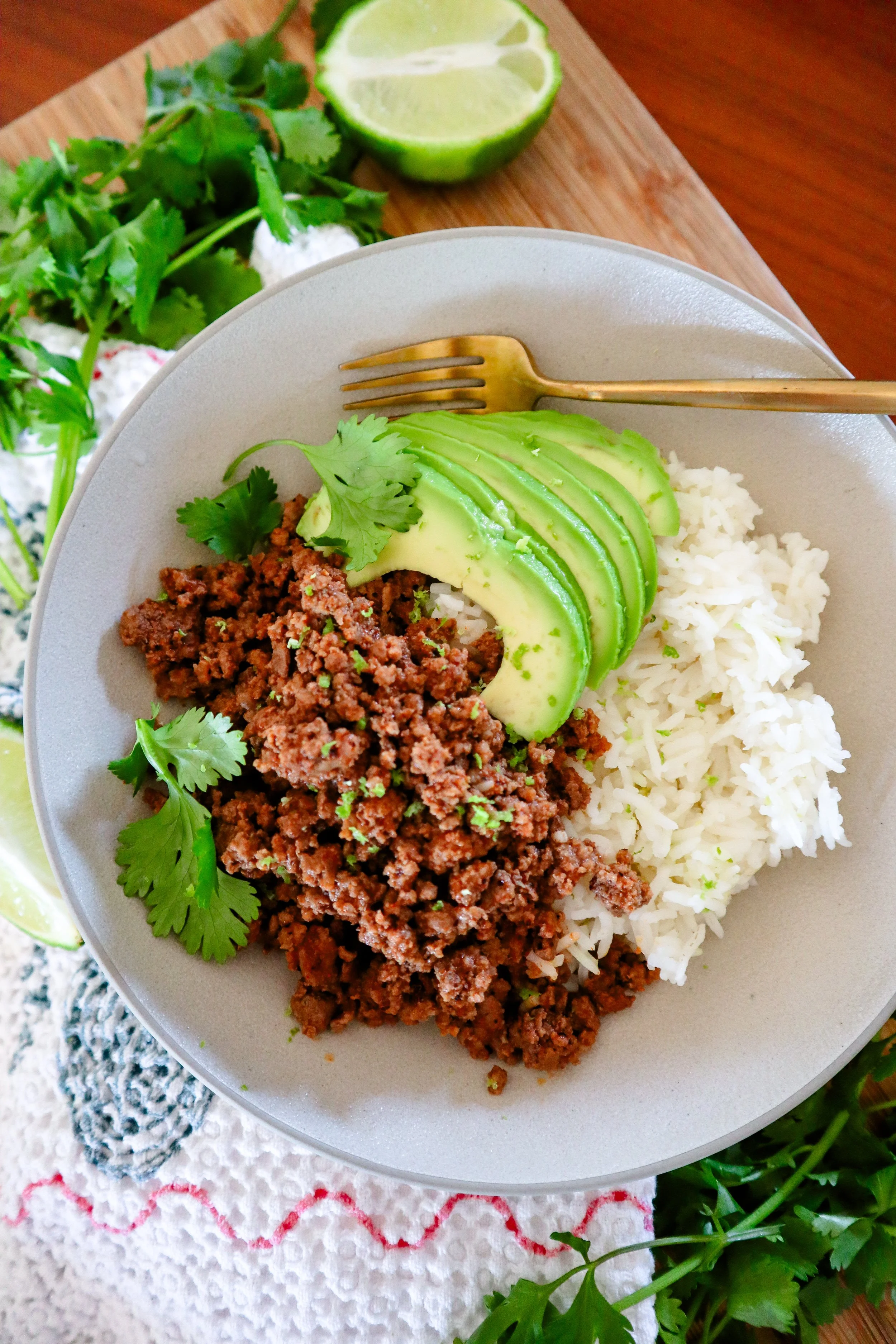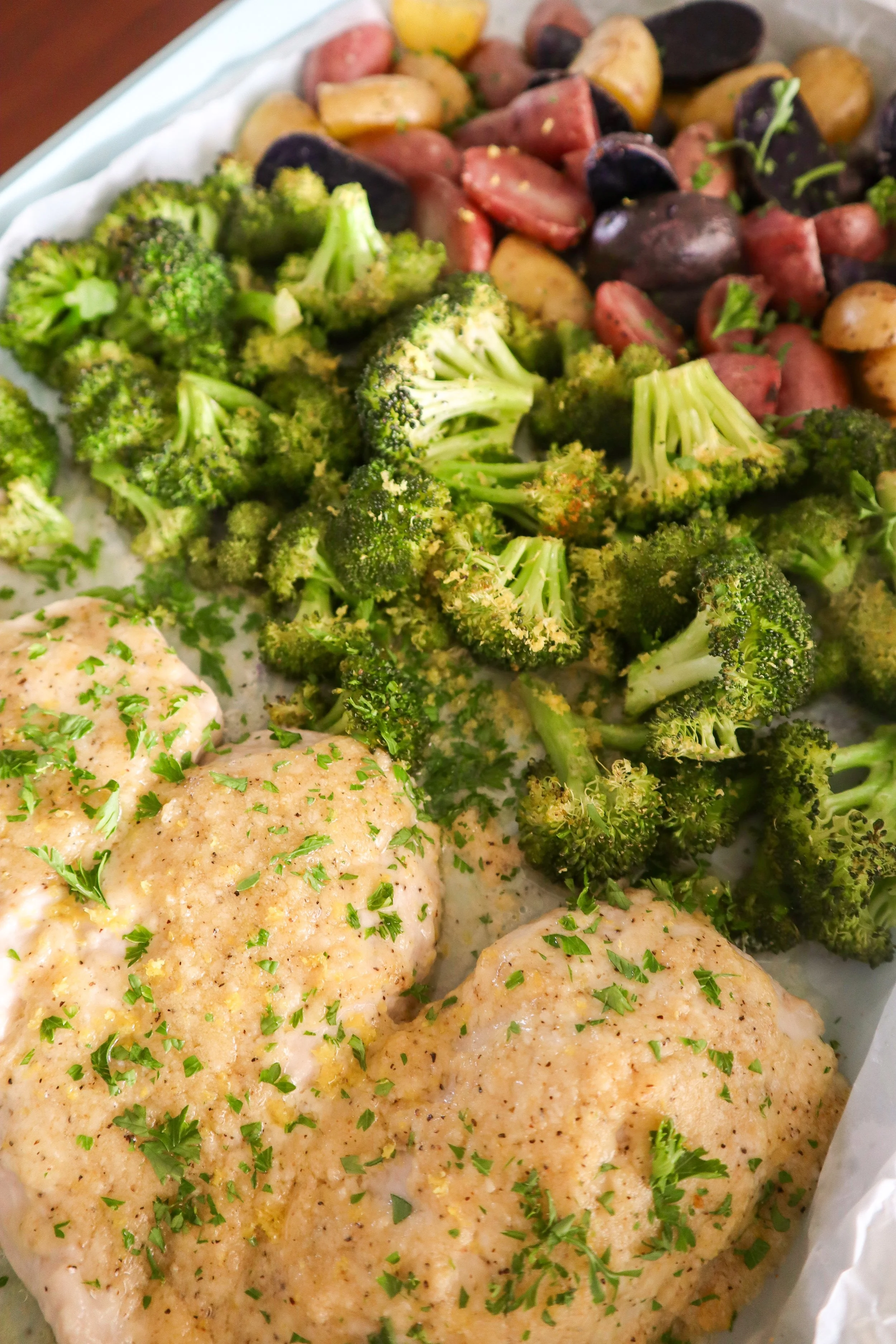How Long Does Cooked Salmon Last in the Fridge?
Have you ever gone to the grocery store with the best intentions, stocking up on ingredients for the week, thinking, “Yes, I’ll definitely cook all this before it goes bad”? Then a few days later, you find yourself staring at that salmon sitting in the fridge, wondering if it’s still safe to eat. Or maybe you did cook the salmon, but aren’t sure if it’s fresh enough now. Sound familiar? I've definitely been there! Here's my complete guide I put together on how long cooked salmon lasts in the fridge and the best ways to store it to keep it fresh.
Looking for some salmon recipes? Check out my Air Fried Salmon eCookbook here!
How Long Does Cooked and Raw Salmon Last?
Raw Salmon: Fresh, raw salmon, whether it’s Atlantic salmon, wild-caught Alaskan salmon, or another variety, can last in the fridge for around 1-2 days. It’s essential to use fresh salmon fillets from the grocery store as quickly as possible to hold the highest quality and avoid foodborne illness. If you’re not planning to cook it within two days, then it's best to freeze it.
Cooked Salmon: For cooked salmon, I recommend enjoying it within 24 hours to get the best quality and flavor. However, the United States Department of Agriculture (USDA) states that cooked salmon can be safely stored in the fridge for 3-4 days. If you’re looking to play it safe, though, try to consume it within the first two days.
How to Store Salmon:
Fresh Salmon
Store fresh salmon in the coldest part of your fridge, ideally at a temperature of 32-38 degrees Fahrenheit. Use an airtight container to limit exposure to air, which can cause the salmon to lose moisture and affect the quality. A sealable plastic bag also works well, especially if you add a layer of plastic wrap or a sheet of heavy-duty aluminum foil to protect the fillet from too much air exposure.
Frozen Salmon
If you don’t plan on cooking your salmon within a day or two, freezing it is the best way to extend its shelf life. I like to wrap each piece tightly in plastic wrap, then place it in a freezer-safe bag to keep out excess air and prevent freezer burn. Be sure to label each package with the date for easy reference. Properly frozen, salmon can maintain its quality for up to three months.
Thawed Salmon
If you’ve thawed frozen salmon, you should treat it like fresh salmon and plan to cook it within 1-2 days. Do not refreeze thawed fish, as this can alter the texture and lead to bacterial growth.
Smoked Salmon
Smoked salmon has a longer shelf life due to the smoking process, but it still requires proper storage in an airtight container in the fridge. For best results, consume smoked salmon within 5-7 days.
Marinated Salmon
Be sure to store marinated salmon in the fridge at all times, ideally in a sealable plastic bag or an airtight container. It should be cooked within 1-2 days for the best results.
Prep Tips to Keep Your Salmon Fresher, Longer!
Following the right storage methods can help extend the life of your salmon. Here are a few preparation tips to ensure the salmon you’re storing stays fresh:
Keep It Dry: Excess moisture can speed up spoilage, so pat your salmon dry with paper towels before storing it.
Use Plastic Wrap or Aluminum Foil: To protect your salmon from air and odors, wrap it in plastic wrap or aluminum foil before placing it in a storage container or bag.
Store in the Coldest Part of the Fridge: The temperature is coldest near the back of the fridge, so store your salmon there for best results.
Jazz's Recommended Products
Here are some of my FAV products for cooking salmon. They make the process so much easier and help me get the best results every time!
How to Tell If Your Salmon Has Gone Bad
Recognizing when salmon goes bad is essential to avoiding potential food safety issues. Here are some smell and visual cues to help you determine if your salmon is still safe to eat:
Strong Odor: Fresh salmon has a mild scent. A strong, fishy odor is a common misconception as an indication of spoilage.
Color Changes: Fresh salmon is usually a bright pink-orange color. If it starts to turn gray or develop dark spots, it’s time to throw it out.
Texture: Spoiled salmon may feel slimy or tacky to the touch, often with a milky-white residue.
Appearance of Mold: Any visible mold or unusual growths are clear signs of spoilage and should be taken as a warning to discard the salmon.
Quick Guide to How Long Salmon Lasts in the Fridge
To summarize, here’s how long each type of salmon lasts in the fridge:
Raw Salmon: 1-2 days in the fridge.
Cooked Salmon: Best eaten within 24 hours for flavor, but safe for up to 3-4 days, according to the USDA’s guidelines.
Smoked Salmon: Up to 5-7 days in the fridge.
Marinated Salmon: 1-2 days in the fridge before cooking.
Salmon Recipes:
FAQs
-
No, it’s not recommended to refreeze thawed salmon, as this can degrade the texture and lead to bacterial growth.
-
The best way to store salmon is in an airtight container or a sealable plastic bag, wrapped with plastic wrap or aluminum foil.
-
Yes, salmon is best stored in the coldest part of the fridge at 32-38 degrees Fahrenheit.
-
Cooked salmon should only be left out long enough to reach room temperature, then stored in the fridge right away.
-
Place the frozen salmon in a bowl of cold water in the fridge and let it thaw overnight.
-
Due to their susceptibility to foodborne illness, pregnant women should consume cooked salmon within 24 hours of cooking to be on the side of caution.
-
Yes, eating spoiled salmon can lead to foodborne illnesses. Always follow best practices for storage and check for signs of spoilage.
Whether it’s your first time cooking salmon or you’re just looking for some general guidelines, following this guide will help keep your salmon fresh and safe to eat, allowing you to enjoy delicious salmon dishes without worry!

